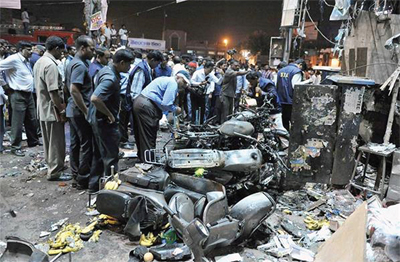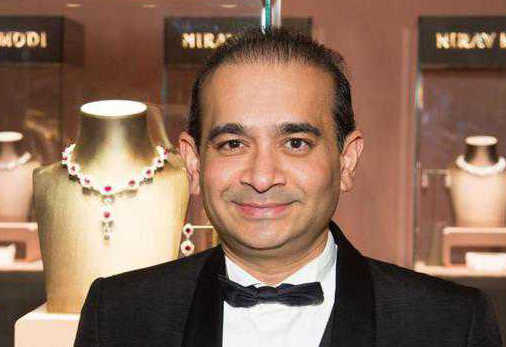
ISLAMABAD (TIP): India‘s Home minister Rajnath Singh used the Saarc Home Ministers’ meeting in Pakistan on August 4 to seek the “strongest” action against countries that back terrorism and pilloried those who eulogize terrorists, delivering a terse message that was not covered by the Pakistani media.
“It also needs to be ensured that terrorism is not glorified and is not patronized by any state. One country’s terrorist cannot be a martyr or freedom fighter for anyone. I also speak for the entire humanity – not just for India or other Saarc members – in urging that under no circumstances should terrorists be eulogized as martyrs. Those who provide support, encouragement, sanctuary, safe haven or any assistance to terrorism or terrorists must be isolated. The strongest possible steps need to be taken not only against terrorists and terrorist organizations, but also those individuals, institutions, organizations or nations that support them. Only this will ensure that the forces engaged in promoting the heinous crime of terrorism against humanity are effectively countered”
Singh did not name any countries or individuals in his speech at the meeting of Saarc interior ministers but there was little doubt he was referring to Pakistan.
The remarks were an apparent reference to the stance adopted by Pakistan on slain Hizbul Mujahideen commander Burhan Wani and the subsequent unrest in Kashmir that left about 50 people dead last month. Islamabad angered New Delhi by referring to Wani as a “Kashmiri leader” and a “martyr” besides describing his death as an “extrajudicial killing”.
“If we are to rid ourselves of terrorism, we will have to genuinely believe that attempts to distinguish between ‘good’ and ‘bad’ terrorists are misleading, and thus, no type of terrorism or support to it can be justified on any grounds whatsoever,” Singh said in his speech.
“Strongest possible steps need to be taken not only against terrorists and terrorist organizations but also those individuals, institutions, organizations or nations that support them.”
Singh said mere condemnation of terrorism was not enough and that terrorists must not be eulogized or glorified as “martyrs”. Singh, who returned to India late Thursday afternoon, said he would speak in Parliament about his visit to Pakistan.
As the Saarc meeting began at Serena Hotel in Islamabad, the frost permeating bilateral ties was plain for all to see. Pakistan’s interior minister Chaudhry Nisar Ali Khan was receiving participants at the entrance of the venue and shaking their hands.
When Singh and a grim-looking Khan came face-to-face, their hands barely touched before the Indian minister moved into the hall, witnesses said.
Khan brought up Kashmir in his speech and criticized what he said was the use of “excessive force” to suppress protests in Jammu and Kashmir. He also said there was a difference between fighting for freedom and terrorism.
“Using torture against innocent children and violence against civilians qualifies as terrorism,” Khan was quoted as saying by the Dawn. Visiting Indian journalists were not allowed to capture the moment as they were kept at a distance by Pakistani officials. This led to an angry exchange between an Indian official and a Pakistani official.
Both Singh and Khan stayed away from a lunch hosted for the Saarc ministers.
Pakistani media, including the vibrant private TV news channels, did not cover Singh’s speech. Pakistani officials said there was great anger in the country against the Indian government over the violence in Jammu and Kashmir, and that was why the media “blacked out” Singh.
“We are respecting public sentiments,” one official said. TV news channel directors said on condition of anonymity they were advised by official quarters not to cover Singh’s speech.
Pakistan tried to downplay the Saarc meet and only state-run Pakistan Television covered the introductory speeches by Pakistan Prime Minister Nawaz Sharif and interior minister Khan.
But India dismissed the “blackout” controversy over Singh’s speech as “misleading”, suggesting only host country ministers’ remarks are aired.
“It is the standard Saarc practice that the opening statement by the host country is public and open to the media while the rest of the proceedings are in camera, which allows for a full and frank discussion of issues,” a government source said.
During his speech, Singh also said terrorism had been greatly amplified by the misuse of digital technology. He asked governments to look at all aspects of cybercrime and called for immediate ratification of the Saarc convention on mutual assistance in criminal matters.
Prime Minister Sharif also touched on terrorism in his opening address but from a different point of view. Sharif said Pakistan had registered “remarkable gains” against terrorists at the national level through the army’s operation Zarb-e-Azb and the implementation of a National Action Plan.
“This reflects our government’s determination to eliminate the scourge of terrorism from our soil for good,” he said.
“Let me reaffirm that Pakistan remains committed to jointly working with the Saarc member states in fighting terrorism, corruption and organized crime among others.”
Singh’s arrival in Pakistan has coincided with protests at several places by radical organizations and extremist leaders such as Jamaat-ud-Dawah chief Hafiz Saeed and Hizbul Mujahideen head Syed Salahuddin. Some protesters gathered at a distance of about 10 km from the National Assembly, located close to the venue of the Saarc meet.
Security was high for Singh, who was transported to the hotel in a helicopter.
Singh also called on the Pakistani premier with other Saarc ministers. The ministers were with Sharif for about 20 minutes and exchanged pleasantries. There were no formal discussions.




